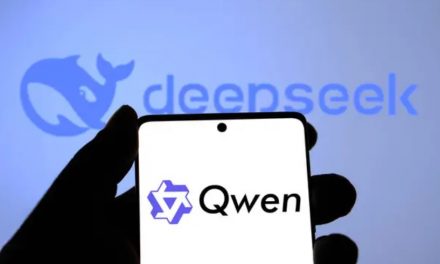When YT Kim slid the matte-black prototype across the table at MWC Barcelona, my first thought wasn’t about the device’s retro-futuristic design or the animated avatar blinking on its secondary screen. It was about the 2014 Sony Pictures hack. Not because Newnal AI Phone resembles a cyberattack vector, but because Kim’s team is attempting something equally audacious: convincing users to voluntarily aggregate their most sensitive life data—medical records, financial histories, voiceprints, facial biometrics—into a single AI model. All while promising blockchain-enhanced security in an industry where “blockchain” has become synonymous with vaporware and rug pulls.
This isn’t just another AI gadget story. What Newnal proposes could redefine personal computing—or become 2024’s most spectacular privacy disaster.
From Vaccine Passports to AI Avatars
Kim’s Seoul-based team cut their teeth developing South Korea’s blockchain-based COVID vaccine verification system, which processed over 43 million digital certificates.
“We learned two things,” Kim told me, fingers tapping the phone’s custom aluminum casing. “First, people will surrender extraordinary personal data if you solve an urgent problem. Second, centralized databases are ticking time bombs.”
Their solution? A decentralized “personal knowledge graph” that encrypts user data, splits it into shards using threshold cryptography, and distributes fragments across multiple cloud providers. Only the user’s device holds the decryption keys. It’s reminiscent of Secret Network’s privacy-focused blockchain architecture but applied to personal AI training data—a technical tightrope walk between utility and security.
The Car Insurance Demo That Defied Belief
Most AI demos crumble under real-world friction. Not this one. When Kim asked the avatar to purchase car insurance, the system:
- Pulled Kim’s driving history from Korea’s national database
- Cross-referenced vehicle specs against NHTSA safety ratings
- Scraped real-time insurance quotes using headless browser automation
- Auto-filled Geico’s application using computer vision
- Processed payment via tokenized credit card credentials
All in 4 minutes 37 seconds. No hallucinations. No manual intervention.
“We bought a 2017 Hyundai Tucson just for this demo,” Kim admitted, noting they’ve spent $218,000 on real-world testing. “AI can’t learn responsibility from synthetic data.”
The Architecture Beneath the Avatar
Newnal’s technical whitepaper reveals a three-layer stack:
- Data Layer: Federated learning pipelines that train lightweight LoRA adapters on user devices, syncing only adapter weights (not raw data) to central servers
- Security Layer: Hybrid encryption combining AES-256 for data at rest and quantum-resistant NTRU algorithms for key exchange
- Interface Layer: A “AI persona engine” blending Stable Diffusion for avatar generation with a fine-tuned Llama 3 model for reasoning
Critically, the system never stores complete user data in one location. Medical records might reside encrypted on AWS, financial data on Azure, and browsing history on Google Cloud—a deliberate fragmentation strategy to deter attackers.
The Privacy Paradox
Here’s where things get thorny. To achieve its promised personalization, Newnal’s AI requires:
- Full access to Apple Health/Google Fit data
- Read/write permissions for email and messaging apps
- Biometric authentication via face and voice
- Integration with financial platforms like Plaid
“It’s the data equivalent of giving a stranger your house keys, DNA sample, and checkbook,” warned Dr. Alicia Tan, UC Berkeley privacy researcher. “Their encryption model is theoretically sound, but implementation flaws could create a single point of failure more dangerous than any centralized database.”
Newnal attempts to mitigate risks through:
- On-device processing for sensitive operations
- GDPR-style data minimization protocols
- Regular third-party audits by Trail of Bits
But as Tan notes, “Audits can’t predict novel attack vectors. This is uncharted territory.”
Market Realities vs. Sci-Fi Ambitions
Priced at $375, Newnal’s phone is more affordable than Humane’s $699 AI Pin and Rabbit’s $199 R1, while offering significantly greater capabilities. However, cost isn’t the primary obstacle—trust is.
“Consumers who’ve been burned by Celsius and FTX aren’t exactly eager to jump into ‘blockchain-secured AI,’” fintech analyst Mark Liu notes. “Newnal faces the challenging task of overcoming crypto’s negative reputation while simultaneously delivering an exceptional user experience—an almost impossible combination.
Regulatory hurdles compound the challenge. South Korea’s Personal Information Protection Commission (PIPC) has already opened inquiries into AI training data practices. The EU’s AI Act classifies Newnal’s avatar system as “high-risk” due to its biometric components, requiring rigorous conformity assessments.
The Road Ahead
Kim remains undeterred. “In 2010, people said smartphones would never replace cameras. In 2020, they said vaccine apps would fail. We’ve shipped 18 million secure health passes. This is next.”
Yet history cautions skepticism. Google’s Duplex AI, which pioneered automated call handling in 2018, remains tightly restricted due to ethical concerns. Meanwhile, Humane and Rabbit struggle with basic functionality.
What makes Newnal different? Three factors:
- Vertical Integration: Owning the full stack from hardware to cloud infrastructure
- Regulatory Footprint: Existing relationships with Korean/EU regulators from their vaccine pass work
- Timing: Launching as global AI regulation crystallizes, not in the Wild West era

The Ultimate Question
As I left MWC, Kim’s parting words lingered: “Do you want AI that knows you, or AI that you have to teach?” It’s a compelling pitch—but one that demands extraordinary faith in
Newnal’s ability to safeguard the digital essence of its users.
Whether this phone becomes the iPhone of personal AI or a cautionary tale depends not on conference demos, but on cold, hard realities: Can decentralized architectures truly protect hyper-aggregated data? Will users trade privacy for convenience at this scale? And can a startup navigate the gathering storm of AI regulation?
The answers arriving this May won’t just determine Newnal’s fate—they’ll shape whether personalized AI remains science fiction or becomes our new reality.
Photo Credits: Allison Johnson / The Verge





